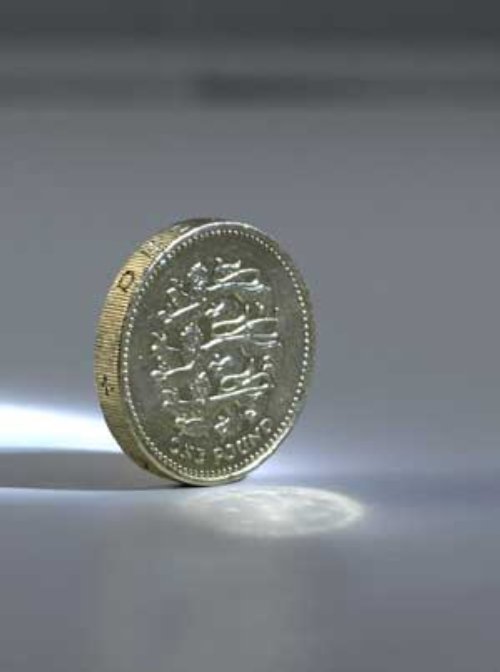confound fiction and fact
Canto I
And then went down to the ship,
Set keel to breakers, forth on the godly sea, and
We set up mast and sail on tha swart ship,
Bore sheep aboard her, and our bodies also
Heavy with weeping, so winds from sternward
Bore us out onward with bellying canvas,
Circe’s this craft, the trim-coifed goddess.
Then sat we amidships, wind jamming the tiller,
Thus with stretched sail, we went over sea till day’s end.
Sun to his slumber, shadows o’er all the ocean,
Came we then to the bounds of deepest water,
To the Kimmerian lands, and peopled cities
Covered with close-webbed mist, unpierced ever
With glitter of sun-rays
Nor with stars stretched, nor looking back from heaven
Swartest night stretched over wretched men there.
The ocean flowing backward, came we then to the place
Aforesaid by Circe.
Here did they rites, Perimedes and Eurylochus,
And drawing sword from my hip
I dug the ell-square pitkin;
Poured we libations unto each the dead,
First mead and then sweet wine, water mixed with white flour.
Then prayed I many a prayer to the sickly death’s-head;
As set in Ithaca, sterile bulls of the best
For sacrifice, heaping the pyre with goods,
A sheep to Tiresias only, black and a bell-sheep.
Dark blood flowed in the fosse,
Souls out of Erebus, cadaverous dead, of brides
Of youths and at the old who had borne much;
Souls stained with recent tears, girls tender,
Men many, mauled with bronze lance heads,
Battle spoil, bearing yet dreory arms,
These many crowded about me; with shouting,
Pallor upon me, cried to my men for more beasts;
Slaughtered the heards, sheep slain of bronze;
Poured ointment, cried to the gods,
To Pluto the strong, and praised Proserpine;
Unsheathed the narrow sword,
I sat to keep off the impetuous impotent dead,
Till I should hear Tiresias.
But first Elpenor came, our friend Elpenor,
Unburied, cast on the wide earth,
Limbs that we left in the house of Circe,
Unwept, unwrapped in sepulchre, since toils urged other.
Pitiful spirit.And I cried in hurried speech:
“Elpenor, how art thou come to this dark coast?
Cam’st thou afoot, outstripping seamen?”
And he in heavy speech:
“Ill fate and abundant wine. I slept in Circe’s ingle.
Going down the long ladder unguarded,
I fell against the buttress,
Shattered the nape-nerve, the soul sought Avernus.
But thou, O King, I bid remember me, unwept, unburied,
Heap up mine arms, be tomb by sea-bord, and inscribed:
A man of no fortune, and with a name to come.
And set my oar up, that I swung mid fellows.”
And Anticlea came, whom I beat off, and then Tiresias Theban,
Holding his golden wand, knew me, and spoke first:
“A second time? why? man of ill star,
Facing the sunless dead and this joyless region?
Stand from the fosse, leave me my bloody bever
For soothsay.”
And I stepped back,
And he stong with the blood, said then: “Odysseus
Shalt return through spiteful Neptune, over dark seas,
Lose all companions.” And then Anticlea came.
Lie quiet Divus. I mean, that is Andreas Divus,
In officina Wecheli, 1538, out of Homer.
And he sailed, by Sirens and thence outward and away
And unto Circe.
Venerandam,
In the Creatan’s phrase, with the golden crown, Aphrodite,
Cypri munimenta sortita est, mirthful, orichalchi, with golden
Girdles and breast bands, thou with dark eyelids
Bearing the golden bough of Argicida. So that:
Ezra Pound
Confucio
ENVOI (1919)
Vai, livro natimudo,
E diz a ela
Que um dia me cantou essa canção de Lawes:
Houvesse em nós
Mais canção, menos temas,
Então se acabariam minhas penas,
Meus defeitos sanados em poemas
Para fazê-la eterna em minha voz
Diz a ela que espalha
Tais tesouros no ar,
Sem querer nada mais além de dar
Vida ao momento,
Que eu lhes ordenaria: vivam,
Quais rosas, no âmbar mágico, a compor,
Rubribordadas de ouro, só
Uma substância e cor
Desafiando o tempo.
Diz a ela que vai
Com a canção nos lábios
Mas não canta a canção e ignora
Quem a fez, que talvez uma outra boca
Tão bela quanto a dela
Em novas eras há de ter aos pés
Os que a adoram agora,
Quando os nossos dois pós
Com o de Waller se deponham, mudos,
No olvido que refina a todos nós,
Até que a mutação apague tudo
Salvo a Beleza, a sós.
(tradução de Augusto de Campos)
SAUDAÇÃO
Oh geração dos afetados consumados
e consumadamente deslocados,
Tenho visto pescadores em piqueniques ao sol,
Tenho-os visto, com suas famílias mal-amanhadas,
Tenho visto seus sorrisos transbordantes de dentes
e escutado seus risos desengraçados.
E eu sou mais feliz que vós,
E eles eram mais felizes do que eu;
E os peixes nadam no lago
e não possuem nem o que vestir.
(tradução de Mário Faustino)
zhamevul beace
Canto xvi, Pound contra Trotzky:
Y lá dinha uma bolcheviki, y eles dirarum zaro dele:
Veja zó o que o zeu Trotzk veiz, ele veiz
a baz geia de bergôí±a!!
“Ele veiz a baz geia de bergôí±a, ã?
“Ele veiz a baz geia de fergôí±a?
“Um Brest-Litovsk, dá? Bocês no escuuta?
“Ele benzeu a guera.
“As dropa estón lifre do vront ozidentall, dá?
“Y entón eles veio pru vront orientall,
“Quandos dinha lá?
“E os que dinha lá estavum tón geio de rhevoluçón
“Quando os vranzeses endrarum, dá?
“Eles disserum, quê?” Y o cara dize:
“Bocês no escuuta? Eu digo, nos demos um rheffoluçón.”
(tradução de Rodolfo Brandão de Proença Jaruga)
Dey vus a bolcheviki dere, und dey dease him:
Looka vat youah Trotzk is done, e iss
madeh deh zhamefull beace!!
“He iss madeh deh zhamefull beace, iss he?
“He is madeh de zhamevul beace?
“A Brest-Litovsk, yess? Aint yuh herd?
“He vinneh de vore.
“De droobs is released vrom de eastern vront, yess?
“Un venn dey getts to deh vertern vront, iss it
“How many getts dere?
“And dose doat getts dere iss so full off revolutions
“Venn deh vrench is com dhru, yess,
“Dey Say, “Vot?” Un de posch say:
“Aint yeh heard? Say, ve got a rheffolution.”
(Ezra Pound)
( fonte do player retirado de http://www.artesonoro.org/ )


